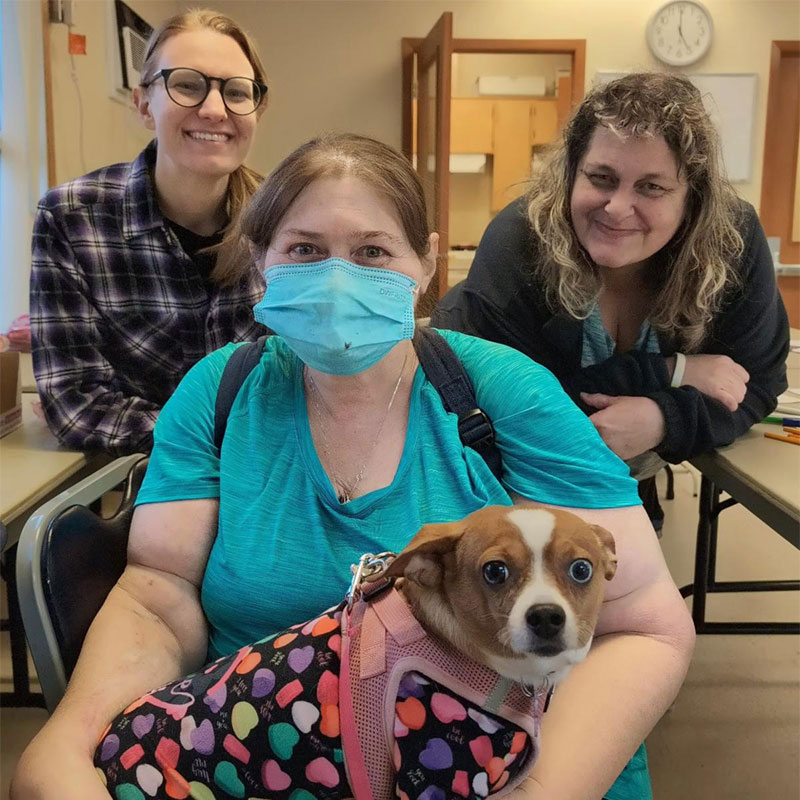Report shows county has exceeded annual housing goal in six months
Clackamas County has rehoused 128 households, or 314 people, in just six months, according to Clackamas County’s quarterly report on the Supportive Housing Services (SHS) Measure outcomes. This exceeds the county’s annual fiscal year goal of rehousing 120 households by June 30, 2024. In six months through SHS funding, the county also:
- placed 223 homeless households, or 429 people, in permanent supportive housing, passing the six-month goal of 203 households
- prevented evictions for 591 households, or 1369 people, passing the six-month goal of 313 households
This progress in addressing homelessness comes on the heels of a 65% decrease in homelessness in Clackamas County from 2019 to 2023.
“These outcomes show that we are doing things right,” says Clackamas County Board of Commissioners Chair Tootie Smith. “We have incredible staff, and our supportive housing services program has really blossomed. Ending homelessness in our county is quickly becoming a reality,” says Smith.
The rehousing program helps people who are at imminent risk of becoming homeless, such as families that have received eviction notices or that are escaping domestic violence. Melissa Erlbaum, the executive director of Clackamas Women’s Services, runs one county-funded rapid rehousing program for victims of domestic and sexual violence.
“Safe housing is a critical need for people fleeing domestic and sexual violence and human trafficking. Supportive Housing Services (SHS) funding has significantly increased our ability to help people find housing that supports them in leaving abusive relationships to have the safety that they deserve,” Erlbaum says. “Prior to the SHS Measure passing, it was difficult to assist people with housing because resources were so limited, and housing is the number one request for services that we receive,” Erlbaum stated.
Permanent supportive housing, another report highlight, is a widely successful method of combining a permanent apartment with all of the social services that someone needs to remain housed and thrive. People must have experienced homelessness for a long period and have a disabling health or mental health condition to qualify for such housing.
Dachea, pictured center, lives in permanent supportive housing and receives resident services funded by the SHS Measure. Dachea, who lives with chronic health conditions, tried for months but was unable to find a caregiver on her own. Her services provider, Bernadette, intervened to help with the laborious process of hiring a caregiver. After hiring Denise, Dachea’s health drastically improved, she was able to stop using an oxygen tank, and she recently started walking again.
“I can’t live without a caregiver. Denise gets groceries and takes me to the doctor, she does everything for me,” Dachea says. “And we love Bernadette. She’s the only one that came into my home and listened to me. She’s always there when I need her,” Dachea says.
 Translate
Translate






